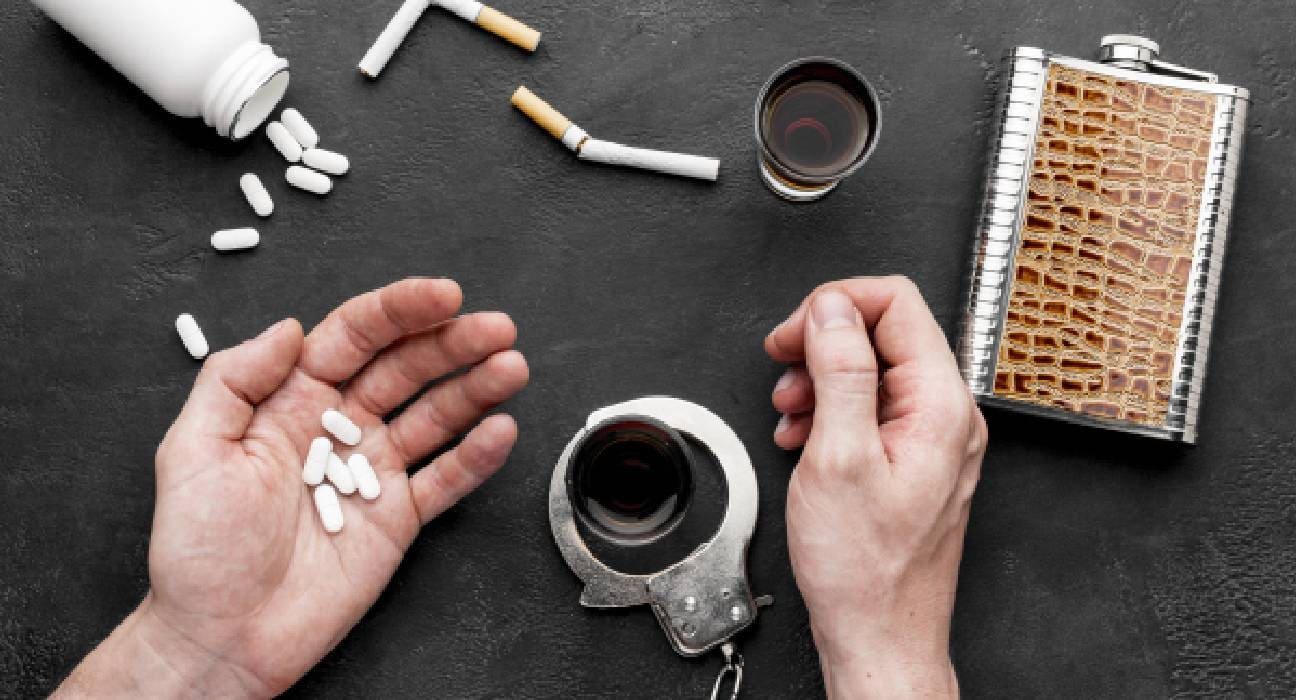How to Break a Bad Habit?
What are Habits?
Habits are a part of everyday life. Habits are routines. They make our lives easier and play an important role in our health. When we wake up, we automatically head to the bathroom to brush our teeth. Or, it’s an automatic response of the body to wash hands after flushing the toilet. Driving along routes you are familiar with does not require conscious thought. This frees up our brains and helps us focus on more important tasks.
Why Do Habits Develop?
Habits can be helpful by allowing the brain to expend much less energy in performing the tasks that are part of the routine. But everybody has habits they would like to break. However, it is not an easy ordeal. Habits, once formed, can be very difficult to kick, even if you know they are bad for you. Most smokers say they are looking to quit the habit but can’t seem to do so. A lot of us have some excess unhealthy weight we could lose if we exercise and eat well, but the habit of overeating is difficult to overcome.
Clues to why this happens can be found in the mechanisms that work in our brain to form a habit. A habit gets established because of the following two reasons:
- Habits arise out of repetition. Once a person performs an activity enough times, the brain gets trained in it, and we begin functioning on mental auto-pilot. These habits are mostly good ones.
- The formation of bad habits is slightly different. Habits can also form when performing an activity that triggers the reward centres in our brains. Certain enjoyable behaviour prompts the brain to release a chemical called dopamine. Thus, when a person is not performing that activity, the brain craves dopamine. This explains why people engage in some habits despite knowing they are harmful to them.
But, it is not impossible to break a bad habit. Humans are advanced creatures with brain regions that help us do what’s best for our health. Once we recognise that a habit is bad for us, we can develop self-control and eventually break it.
What is Self-control?
Humans are known to be better than any other species for their ability to make choices that are beneficial for them in the long term. We can orient our behaviour to achieve our long-term goals and resist the temptation to give in to temporary pleasures that might be eventually harmful. Self-control in humans is similar to a muscle. Once you exercise self-control, it gets tired for a while and needs time to recover. But, just like a muscle, regularly exercising different kinds of self-control can strengthen your resolve.
Read: The Psychology Behind Resilience
Tips to Break a Bad Habit
There is no single effective approach to breaking a bad habit that works for everyone. The ways to develop self-control need to be customised to your specific needs, based on the kind of habit you are trying to break, and how long you have had it. But here are some strategies that can help you break unhealthy habits:
1. Identify and Avoid Triggers
The most important part of breaking a bad habit is to become aware of them, and what situations or objects trigger them. In our minds, habits can be linked to certain places, objects, times of the day, persons, or other activities. For example, the habit you are trying to break is going to bed very late at night. You may find out after observing your behaviour for a few days that you tend to sleep late when you scroll on your phone before bed. But, if you take a walk, you can go to bed on time. Or, if you stop at the same place to smoke while going to work, you can take a different route to avoid crossing that place. Recognising such patterns can help avoid triggers that can induce you to engage in the bad habit you are trying to break.
Read: 10 Proven Ways for Anger Management
2. Replace With A Healthy Habit
Substituting a bad habit with a good one, which gives you similar satisfaction, can be more helpful than simply trying to put a stop to it. It is hard to stop doing a thing you are used to, but it is easier to start doing a new thing in its place. For example, if you have a bad habit of unhealthy snacking in your leisure time, you can try to replace junk snacks with healthy ones, such as salads or nuts and seeds.
3. Visualise
Breaking habits does not always have to be a physical thing. Simply visualising yourself resisting a temptation can also help greatly. Imagine yourself in a triggering situation, and try to enact in your mind how you should react to it, instead of giving in to the bad habit. For example, you can think of yourself about to give a speech in front of a large audience. The anxiety of the situation can impel you to bite your nails. But instead, you can visualise yourself taking deep breaths to calm yourself down.
4. Distract Yourself
If you are getting strong urges to engage in unhealthy habits, it is a good strategy to distract yourself with something that can occupy your mind enough to forget about the temptation temporarily. If you are trying to avoid overeating and get sudden cravings, it is a good idea to call up a friend or watch a film you’ve been meaning to, and take your mind off the thoughts of eating.
5. Avoid All-or-Nothing Mindset
When people decide to embark on the task of breaking a bad habit, they tend to have an all-or-nothing mindset. This refers to the attitude of trying to restrict themselves from engaging in bad habits all at once. This is counterproductive because it leads to quick burnout. As soon as they relapse into the behaviour, they give up on their goal completely. It is a better strategy to take micro-steps towards your goal. If you are trying to break the habit of waking up late, you can try waking up earlier in short increments. On the first day, try to be up 5 minutes before your usual time, on the next, 10 minutes
earlier, and so on.
6. Reward Yourself for Keeping Up
Once the initial enthusiasm of trying to break a bad habit fades, it gets more and more difficult to resist it without seeing any benefits of it. This is why it is helpful to reward yourself for progress. If you are trying to beat alcohol addiction, once in a while, it is good to collect the money that you have saved by not purchasing alcohol and buying something that you have always wanted. This can lead to a positive response in the brain, and help you stay determined about your goal.
7. Go Slow, and Forgive Slip-Ups
It is a popular notion that it takes 21 days to make or break a habit, but it is far from the truth. The time it takes to let go of an unhealthy habit depends on a lot of factors, such as the emotional or physical needs it fulfils, the presence of support from other people, and the duration of the habit. You must remember that it is a very difficult task to rewire your brain into breaking a habit, and you should not expect progress within the first few days. Being persistent is the key. Also, it is very important not to give up if you make a mistake and slip up. The important part is to continue your resolve after that.
To find More Articles on Addiction: Click Here
8. Remember Why you Want to Change
Reminding yourself of the reason why you wanted to break the bad habit in the first place can help you prevent engaging in unhealthy behaviour. For example, if you are a dessert aficionado who gets strong cravings after each meal, merely reminding yourself that you are trying to cut down on sugar because of the dangers of developing diabetes, can work wonders in preventing you from eating desserts.
Read: What should you expect in your First therapy session?
9. Get Professional Support
Sometimes, the habits that you are trying to break might be severe, such as some forms of addiction, compulsive eating, or substance misuse. In such cases, seeking help from a professional, such as a therapist might be a good idea. They can provide you with insight on why you are relying on bad habits to fulfil certain needs, and how you can satisfy those needs in other, healthier ways. They can also help you keep better track of your progress, and offer advice in case of difficulties.
Read books related to Habits
- Atomic Habits by James Clear
- The 7 Habits Of Highly Effective People by Stephen R. Covey
- Better Than Before by Gretchen Rubin
- The Power Of Habit by Charles Duhigg













Leave feedback about this